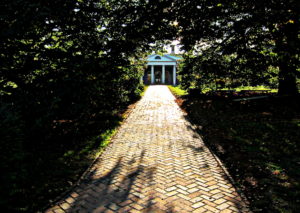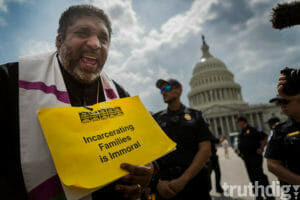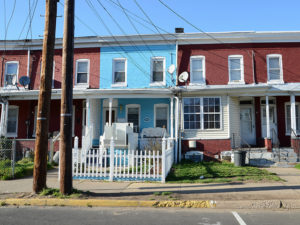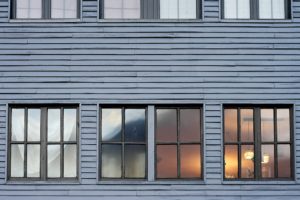Economic Recovery Leaves African-American Homeowners Behind
Even for blacks with six-figure incomes, housing values in predominantly black neighborhoods have not bounced back as in comparable white areas, a Washington Post analysis finds. Global Panorama / CC BY-SA 2.0
Global Panorama / CC BY-SA 2.0
Global Panorama / CC BY-SA 2.0
Across the country, post-recession housing values are lower for blacks — even those with six-figure incomes — than for their white counterparts. And in Georgia’s South DeKalb County, the difference is particularly stark, a Washington Post report finds.
“The communities in South DeKalb are almost entirely African American, and they reflect a housing disparity that emerges across the Atlanta metropolitan area and the nation,” the Post reported Monday. “According to a new Washington Post analysis, the higher a Zip code’s share of black residents in the Atlanta region, the worse its housing values have fared over the past turbulent housing cycle.”
Nationwide, home values in predominantly African American neighborhoods have been the least likely to recover. Across the 300 largest U.S. metropolitan areas, homes in 4 out of 10 Zip codes where blacks are the largest population group are worth less than they were in 2004. That’s twice the rate for mostly white Zip codes across the country. Across metropolitan Atlanta, nearly 9 in 10 largely black Zip codes still have home values below that point 12 years ago.
And in South DeKalb, the collapse has been even worse. In some Zip codes, home values are still 25 percent below what they were then. Families here, who’ve lost their wealth and had their life plans scrambled, see neighborhoods in the very same county — mostly white neighborhoods — thriving.
“I don’t think it’s anything local residents did that caused that to happen,” economic development consultant and real estate agent Wayne Early told the Post. “I think it’s all outside forces that did this.”
“The region reflects the complex ways that housing and race have long been intertwined in America,” the Post continued. “Across the country, blacks are less likely to own homes; those who did were more likely during the housing bust to slip underwater; and as a result, a larger share of black wealth has been destroyed in the years since then.”
“It just does not make sense,” David Sands, a retired Air Force information manager and father of two, told the Post. “You’ve got doctors, lawyers, teachers, all kinds of professional people, retired military like myself, who’ve done everything right — everything right — and it never seems to work out in our favor. … We’re not talking about people who got fraudulent loans, who didn’t have jobs to pay for them.”
More from the Post:
The explanation isn’t simply about race itself — a house isn’t worth less because a black family owns it — but also about all the inequities that have been correlated with race over time. Black homeowners and predominantly black communities who had been barred from earlier generations of lending — victims of discrimination and government policy — were particularly likely to be targeted for predatory loans during the bubble, according to both academic research and federal lawsuits that the Justice Department brought against banks.
Even well-off African Americans, like the ones in some South DeKalb subdivisions, were more likely to be given subprime loans when they should have qualified for better ones. Nationwide, black families earning around $230,000 a year, according to research by sociologist Jacob Faber, were more likely at the height of the bubble in 2006 to be given a subprime loan than white families making about $32,000. The problem, Faber argued, wasn’t that professional blacks didn’t understand that they qualified for better loans; they were targeted for bad loans. Subprime lenders viewed them, Faber argued, as particularly profitable targets.
Longtime homeowners in South DeKalb say they are now being punished for their Zip codes. All these recent problems — the predatory lending, the foreclosures, the abandoned development — occurred around them. And that past still tugs at their property values, no matter how much work they do to maintain their home.
—Posted by Alexander Reed Kelly.
Your support matters…Independent journalism is under threat and overshadowed by heavily funded mainstream media.
You can help level the playing field. Become a member.
Your tax-deductible contribution keeps us digging beneath the headlines to give you thought-provoking, investigative reporting and analysis that unearths what's really happening- without compromise.
Give today to support our courageous, independent journalists.






You need to be a supporter to comment.
There are currently no responses to this article.
Be the first to respond.